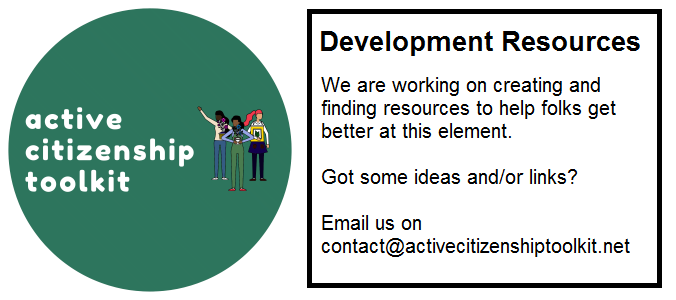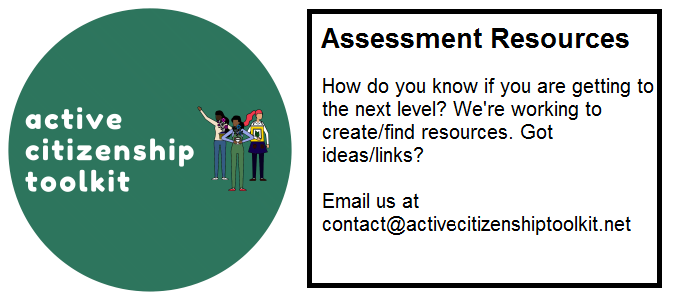Element Descriptor
Ableism isn’t just a lack of wheelchair ramps (lots of disabilities are “invisible”, anyway). Ableism an ideology, and like any ideology, it has its supple and hidden sides, complete with justifications and immune responses when attacked. And you’re walking around with a big healthy dose of it. So, if you want to do allyship at any meaningful level, you’re gonna have to take a good look at patriarchy and yourself. If you don’t, you’re part of the problem, and you’re gonna (further) exhaust women (and some men).
Level descriptors
| Novice | Practitioner | Expert | Ninja |
|---|---|---|---|
| You know that not all disabilities are visible. You are able to spot obvious/deliberate mechanisms by which some people are excluded, and point to ways this could be avoided/combatted | You can understand and explain to others multiple forms of disability and how these play out in day-to-day circumstances, and what good design and good allyship look like, without being patronising, condescending or paternalistic | You have a comprehensive understanding of the theories and practices around combating “ableism”, probably because you are or have been on the receiving end of some of it yourself. You’re able to explain to oblivious or vaguely skeptical people that it really isn’t (just) about wheelchair ramps, and that if they want to have the benefit of the energies of all members of society, then a change it has to come. | You’re like an expert, only you can deal with all the heckles, jibes and spurious arguments without losing your cool, and this helps “convert” some of the people looking on as you lock horns with some dickhead. |
Element Overview Essay
This is a draft. If something doesn’t make sense, or you see typos, or if you have further ideas, please email us on contact@activecitizenshiptoolkit.net
The causes of able-bodied people not understanding ableism Well, on one hand, it’s the goldfish in the water, you know, “how’s the water? What water?”
We are all of us, temporarily abled. Sooner or later at some point in our lives. If we live long enough, you know, we’re gonna get old and slow and deaf and blind, and frail. And for a lot of people that doesn’t happen till they’re in their 70s or 80s and other people live with disability caused by how society is set up in the infrastructures a lot earlier.
And I think one of the underlying problems around ableism is people are very uncomfortable to imagine being disabled, it presses a lot of buttons about being vulnerable about being dependent. All the things that we kind of mostly struggle against as adults, and therefore it’s easier to look away.
But if you look away, again, as with the other isms and patriarchy and white supremacism, you will miss the insights, intelligence, energies, networks, passions, of a whole bunch of other people who are really up against the sharp end and have probably learned a lot of stuff that you would usefully know. And in the absence of of seeing ableism, you’ll just miss that and you’ll piss them off.
And you’ll demoralise them.Or you won’t necessarily demoralise them, but you’ll lose them as potential allies, which is a crying shame.
And you’ll be part of propping up ableist systems, which you probably feel a bit ashamed of when it’s eventually pointed out to you years later.
So, what is to be done? Well, obviously, you’re gonna need to collectively educate yourselves. There are texts and videos and so forth out there and don’t expect people who are coping with a society that has rendered them disabled to do the hard work of educating you. That is on you, you have the privilege. So you better use it.
Do it collectively do it systematically. Do it long term, but do it.
Development Resources

Assessment Resources

